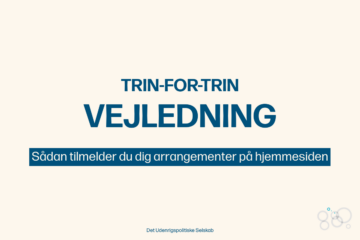Report Summary: Deployment and Distress: Legal issues confronting Danish navy vessels in connection with search and rescue of migrant boats in the Mediterranean
Deployment and Distress: Legal issues confronting Danish navy vessels in connection with search and rescue of migrant boats in the Mediterranean. By Thomas Gammeltoft-Hansen and Andrea Belén Jimenéz Laurence, Centre for Military Studies, November 2021, 98 Pages. Link to full report.
The execution of maritime search and rescue (SAR) within Europe and the Mediterranean is increasingly subject to political and legal discussions, prompted by an increase in irregular boat migration. The practical approach foreseen in the SAR process conflicts at times with the political sensitivities associated with migration control. The Mediterranean region in particular has experienced repeated instances of political controversy, with port closures, reported non-performance of SAR, and even outright pushbacks. These disputes impact migrants and others in distress at sea most directly, but also individual shipmasters, including Danish shipping companies. SAR also raises legal concerns and creates political dilemmas for naval authorities and states like Denmark who actively participate in cooperative maritime operations as part of the EU or NATO.
This report analyzes the international legal obligations which face Danish naval forces in SAR operations in the Mediterranean. It argues that the situation in this area is a result of problems with the existing international legal SAR framework, made worse by the increased politicisation of the issue of boat migrants in the Mediterranean. Additionally, it argues that SAR operations are overseen by many different international organizations and states, all with different and sometimes conflicting interpretations of legal frameworks. Backed by historical evidence, the report suggests that changing structures of transnational law enforcement raise questions about legal responsibilities of each state and their obligations in SAR operations.
The report examines the different legal systems which oversee SAR operations, including International Humanitarian, International Human Rights, International Refugee, and EU law. It identifies specific responsibilities under these different systems, distinguishing between individual and shared responsibility, and explains how the joint implementation of different legal systems can create challenges for defining individual state responsibilities. As a solution, the report sets out four recommendations pertaining to Danish naval operations in the Mediterranean in which SAR situations may occur:
- Consistent Approach: Denmark should maintain a consistent approach to central SAR concepts across the operational and political levels, in line with relevant international standards and obligations.
- Explicit Guidelines: Operational guidelines should explicitly clarify the responsibility of Danish naval forces where command structures, operational directives or the actions of international agencies and/or partner state authorities risk leading to violations of international obligations.
- Standards: Standards should be developed for making risk assessments regarding possible international law violations by partnering states, and for assessing and acting upon possible incidents of pushbacks or other international law violations reported by Danish forces or external sources.
- International Involvement: As both an active participant in joint maritime operations and a major shipping nation, Denmark should involve itself more actively in international legal and political processes to address the shortcomings identified in the current SAR regime.
This summary is written by Anna Thomsen, Intern at the Danish Foreign Policy Society on a Metcalf Research Grant from the University of Chicago and undergraduate student at the University of Chicago studying Political Science and Eastern European Studies, with a focus on the Balkans as well as the Russia-Ukraine war.


